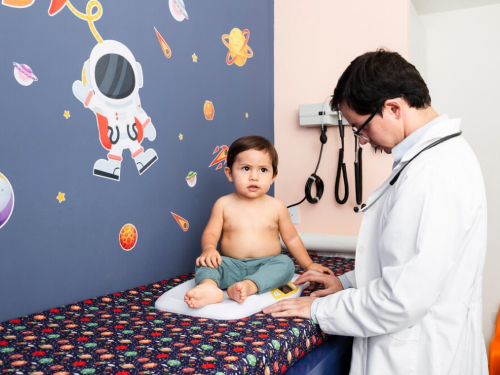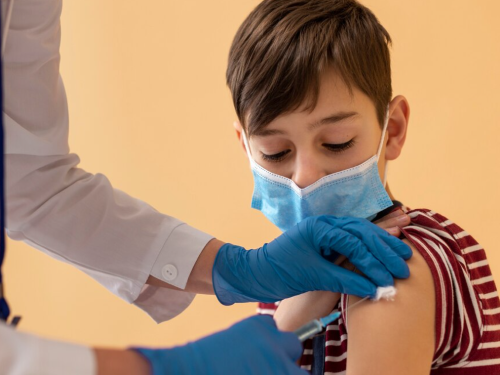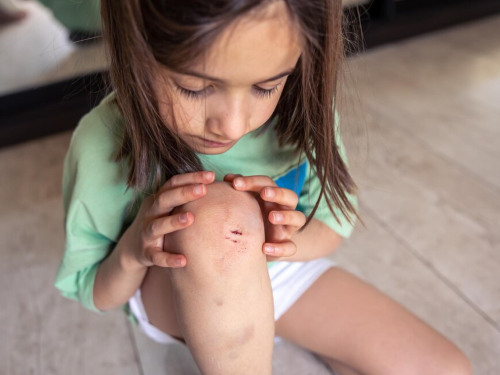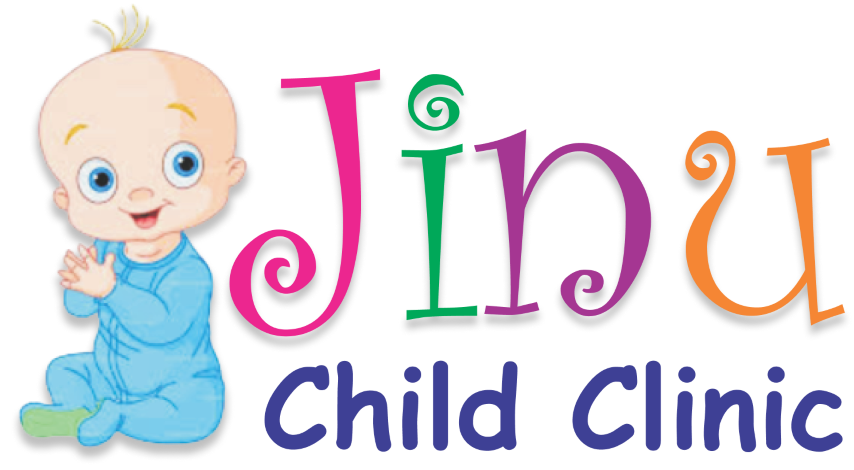SERVICES
New Born Baby Health Checkup, Neonatal Jaundice
Taking a newborn care class during pregnancy can prepare caregivers for the real thing. But feeding and diapering a baby doll isn’t quite the same. During the stay in a hospital or birthing center, clinicians and nurses help with basic baby care. These health providers will demonstrate basic infant care. Newborn care basics include:
- Handling a newborn, including supporting the baby’s neck
- Changing diapers
- Bathing
- Dressing
- Swaddling
- Feeding and burping


Infectious Diseases
Infectious diseases in children can vary widely, ranging from common colds and respiratory infections to more serious conditions like pneumonia, chickenpox, or even childhood infections like mumps and measles. Prevention through vaccinations is crucial in safeguarding children from some of these illnesses. Good hygiene practices, such as regular handwashing, also play a significant role in minimizing the risk of infections. Infectious diseases in children can be caused by a variety of microorganisms, including bacteria, viruses, fungi, and parasites. Children are often more susceptible to infections due to their developing immune systems and increased exposure in daycare or school settings.
Childhood Infection- Asthma
Childhood infections are common illnesses that can affect children during their early years of life. These infections can be caused by various microorganisms, including bacteria, viruses, fungi, and parasites. Here are some common childhood infections:
Respiratory Infections:
– Common Cold: Caused by viruses, such as rhinoviruses. Symptoms include a runny or stuffy nose, sneezing, coughing, and sometimes a mild fever.
– Influenza (Flu): Viral infection that can cause high fever, cough, sore throat, body aches, and fatigue.


Vaccination
Vaccination is a crucial aspect of child healthcare, as it helps protect children from various infectious diseases. Vaccines work by stimulating the immune system to recognize and fight specific pathogens, such as bacteria or viruses. Here are some key points about vaccinations in children:
Vaccine Schedule: The vaccination schedule is a timeline recommended by health authorities that outlines when children should receive specific vaccines. This schedule is designed to provide protection early in life when children are most vulnerable to certain diseases.
Routine Vaccines: Common routine vaccines for children include those for diseases like measles, mumps, rubella, polio, diphtheria, tetanus, whooping cough (pertussis), hepatitis B, and Haemophilus influenzae type b (Hib), among others.
Growth & Development Monitoring
Monitoring a child’s growth and development is essential for ensuring they are healthy and reaching developmental milestones. Here are some key aspects of growth and development monitoring in children:
Regular Check-ups: Regular well-child check-ups with a pediatrician are crucial for monitoring growth and development. These visits typically occur at scheduled intervals, such as during the first few days after birth, then at 1 month, 2 months, 4 months, 6 months, and so on.
Measurement of Growth Parameters:
- Weight: Regular weight measurements help track a child’s overall health and nutritional status.
- Length/Height: Height or length measurements indicate growth in stature and are important for assessing development.
- Head Circumference: Measuring the head circumference is crucial, especially in infancy, as it can indicate proper brain development.


Pediatric Skin Problems
Pediatric skin problems can vary widely and may include conditions ranging from common rashes to more serious issues. Here are some common pediatric skin problems:
Diaper Rash: This is a common irritation of the skin in the diaper area. It can be caused by wetness, friction, or sensitivity to certain products.
Eczema (Atopic Dermatitis): Eczema is a chronic skin condition that often appears as red, itchy patches on the skin. It is common in children and can be triggered by various factors, including allergies and genetics.
Acne: While more common in teenagers, some children may develop acne. It can range from mild to severe and may require different treatment approaches.
Adolescene Health Problem
When it comes to adolescent health problems in children, it’s important to address issues that typically arise during the teenage years. Here are some common health concerns for adolescents:
Acne: Hormonal changes during puberty can lead to increased oil production, causing acne. This skin condition can impact a teenager’s self-esteem, and proper skincare is essential.
Eating Disorders: Adolescents may be at risk for eating disorders such as anorexia nervosa, bulimia nervosa, or binge-eating disorder. These conditions can have serious physical and psychological consequences and require professional intervention.
Mental Health Issues: Adolescence is a time when mental health issues like anxiety and depression may emerge. Peer pressure, academic stress, and hormonal changes can contribute to these challenges.


Child Health Care
At our clinic, we prioritize comprehensive child health care, ensuring every child receives the attention and support they need for optimal growth and development. From routine check-ups to specialized care, our dedicated team of pediatricians is committed to providing a nurturing and safe environment for your child. We understand the importance of early detection and intervention, offering a range of services including vaccinations, developmental screenings, and nutritional guidance. Whether it’s addressing common childhood illnesses or supporting families with complex medical needs, we strive to empower parents with the knowledge and resources to promote the well-being of their children. Your child’s health is our priority, and we’re here to partner with you every step of the way on their journey to a healthy and happy life.
Care of Infants, toddler and pre-schoolers
Caring for infants, toddlers, and preschoolers requires a tailored approach that recognizes their unique developmental stages and needs. At our clinic, we specialize in providing compassionate and comprehensive care for children in these crucial early years.
For infants, we emphasize regular check-ups to monitor growth and development, as well as vaccinations to protect against common childhood illnesses. We also offer guidance and support for new parents, addressing concerns such as feeding, sleep patterns, and infant safety.


Low Birth Weight Babies
Caring for low birth weight babies requires specialized attention and support to ensure their healthy growth and development. At our clinic, we understand the unique challenges these infants may face and are dedicated to providing comprehensive care tailored to their needs.
From the moment of birth, we prioritize close monitoring of low birth weight babies, assessing their growth, nutritional needs, and overall health. Our team of healthcare professionals collaborates closely with parents to develop individualized care plans that address the specific needs of each baby.We offer specialized medical interventions when necessary, such as respiratory support or nutritional supplementation, to support the infant’s growth and development.
Pediatric Nutrition Support
Pediatric nutrition support is crucial for children who may have specific dietary needs due to medical conditions, growth concerns, or feeding difficulties. At our clinic, we offer comprehensive pediatric nutrition support services tailored to each child’s unique requirements.
Our team of pediatricians, dietitians, and other healthcare professionals works collaboratively to assess the nutritional needs of children and develop personalized nutrition plans. We provide guidance on appropriate feeding methods, nutrient requirements, and dietary modifications to ensure optimal growth and development.For children with medical conditions such as food allergies, gastrointestinal disorders, or metabolic disorders, we offer specialized nutritional interventions.


Autism and Speech Delay
Autism spectrum disorder (ASD) often manifests alongside speech and language delays, although it’s important to note that not all children with speech delays have autism, and vice versa. When a child presents with both autism and speech delay, early intervention is crucial.
At our clinic, we take a multidisciplinary approach to support children with autism and speech delays. Our team includes pediatricians, speech-language pathologists, developmental psychologists, and occupational therapists, all working together to provide comprehensive care.
We start by conducting thorough evaluations to assess the child’s developmental strengths and areas of need.
